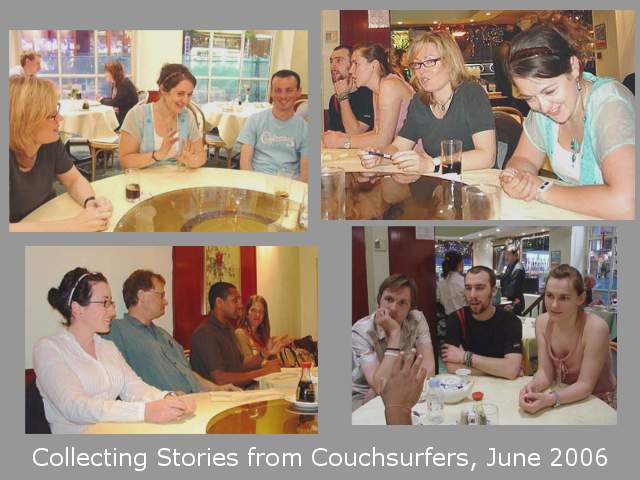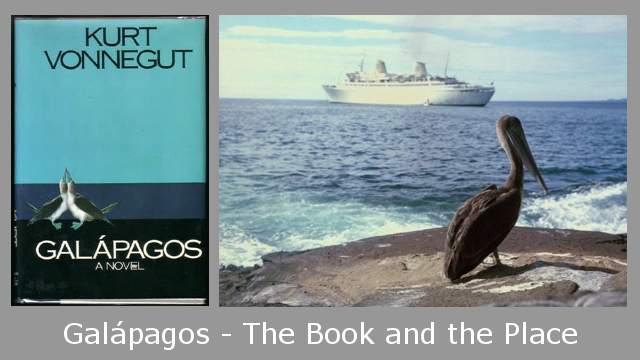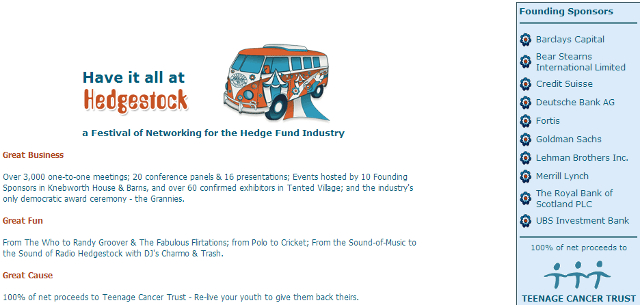Editor’s note: There has been a lot of talk lately about the state of Couchsurfing. BootsnAll has published two articles in the past few weeks, The End of a Dream: Couchsurfing’s Fall, and Re-Realizing the Dream: How to “Fix” Couchsurfing. Both articles have generated a lot of discussion, both good and bad. Brooke Allen, author of the article below, is a long time Couchsurfer who has studied what made an organization like Couchsurfing and an event like Burning Man work.
There will be four parts to this series:
1. The Good – What Couchsurfing meant to me (and so many others).
2. The Explanation – Why Couchsurfing was so magical.
3. The Bad – Couchsurfing’s changing nature.
4. The Future – Couchsurfing’s promise and how to realize it.
Couchsurfing Part 1 – THE GOOD

Couchsurfing has improved my life immeasurably. It has renewed my faith in humanity, and it has given my life a new purpose.
I think I have been a good community member: a gracious host, an appreciative guest, and good company to fellow travelers. However, other than talking it up to everyone who will listen, and the $20 I sent to get verified in 2006, I have done nothing to help advance the cause.
Sign up for our Daily Dose to be notified of new articles each day!
But now that Couchsurfing is in trouble, it is time for me to be of use.
I discovered CS in 2006, and more than just valuing it for its obvious benefits as a traveler, it sparked an abiding interest in:
- How each of us can become a better person, and
- What makes communities thrive.
My journey of discovery has brought me to many places and introduced me to some world-class experts in the social sciences, psychology, politics, and economics. I have developed some useful theories, and proved them in practice in my various business and social entrepreneurship ventures.
Although I have plenty of complaints about how CS has evolved recently, the tone of this series is optimistic. I hope you will find my comments insightful, my criticisms constructive, and my suggestions worth considering. Although the potential for Couchsurfing has never been greater, its success is in peril. I hope my ideas can change the tone and direction of the discussion, and have some influence over what happens next. I offer my services in whatever ways are appropriate.
Heaven on Earth

To understand what Couchsurfing means, you need to understand the feeling it engenders, and to do that you need to have an experience. My experience happened nearly 30 years ago. You may wonder how this experience relates, but bear with me – no skipping ahead!
I wanted to spend our honeymoon in the Galápagos during the last week of November, 1986. Why? Because Kurt Vonnegut’s 1985 book, Galápagos, tells a tale of a small band of people who take a cruise to the Galápagos Islands on that particular weekend. A disease breaks out that renders everyone else on the planet infertile, and a new and better breed of humans evolves from those few surviving tourists. How romantic would it be to have our honeymoon in that place and time?
I visited the Ecuadorian consulate in New York where their ambassador to the United Nations heard me ask his secretary for the special visas we would need to visit the islands. He yelped “Galápagos” and dragged me by the arm into his office. He’d just developed a huge stack of photos, taken on his own recent trip to the islands, and he described each scene with the hurried enthusiasm of a madman. All I could see in the snapshots were a few mountains here, some water there, a bit of brush, and a tree or two. After half an hour he was less than half-way through when he looked at his watch and said, “Oh my god; I’m late.”
He returned me to his secretary and said, “Get this man and his new bride visas for the Galápagos.”
A young woman sitting nearby shouted, “Galápagos! I love the Galápagos.”
The ambassador thrust the stack of photos at the young woman and said, “Explain it to him; he doesn’t get it.”
She stared at the topmost photograph for a very long time.
And then she burst into tears.
I said, “I don’t get it. It just looks like a bunch of rocks.”
“That’s exactly what I said when first I got there.” She sniffled, “This is nothing but a bunch of fucking rocks.”
It took her a while to compose herself before continuing. “The thing is, if you were sitting on one of those rocks then lizards would walk right up to you, birds would land on your shoulders, and animals will want to play with you.”
“So?” I knew that creatures had evolved to be friendly because there were no predators.
“So… That is when you realize what life would be like if you did not know fear.”
And then she burst into tears again.
Despondency

I was in London in June of 2006 to attend something called Hedgestock, which brought hedge fund managers, investors, and bankers together for a “Festival of Networking.” (Theme: Woodstock. Regalia: Plastic Love Beads. Motto: Peace, Love, and Higher Returns.) Entertainment was provided by The Who as a favor from Peter Townsend to his personal hedge fund manager. I was 16 when The Who played Woodstock, and I had never seen them in person. You would think I would be excited.
But I was despondent rather than excited. There was something wrong.
I am a member of the Woodstock Generation, and we had thought we could change the world. However, by 2006 it seemed we had turned on our ideals and implemented our worst debt-laden, superficial, selfish, and materialistic nightmare. Most hedge fund managers spend their days making rich people richer, and calling our gathering “Hedgestock” was just too much to bear. The more successful among us might give our children all manner of goods, but were we good people?
Then I discovered Couchsurfing, and everything changed.
As close to Heaven as you can get
Because I had been in London dozens of times before, this time I searched the web for a hint of a tourist experience I had not already had. When I stumbled upon Couchsurfing, I immediately signed up and invited 50 members to join me for dinner on the following Monday to explain this thing to me. Why 50? Because when I travel, I’ll often try to connect with LinkedIn contacts-of-contacts to meet casually, and if I write to 50, five will be polite enough to respond, three will say they will meet me, and one will show up.
Nearly every Couchsurfer responded immediately. Half of them could meet on the Monday, and so I booked a few banquet tables at a Chinese restaurant just north of Leicester Square. Everyone showed up, and for 3.5 hours I collected the most amazing stories of travel, adventure, and kindness.
At the end of the evening I asked, “So. Has anyone had any problems?”
Everyone shook their heads, “No.”
“But surely someone somewhere has had problems; a rape, a theft… something?”
“Nope.”
“How do you know?”
“Because there would have been an announcement.”
I was in shock; I had never heard of such a thing.
In the 1970’s I’d hitch-hiked over 25,000 miles to every state of the union (except for Alaska and Hawaii). Usually I would sleep on the side of the road, on a stranger’s couch, or on their floor. I’ve had my share of miserable nights standing in the snow or rain. I’ve been propositioned by many homosexual men (and a few females). Although uncomfortable, all but one was gracious when I turned them down. I only felt violated once when a convicted felon who had been playing the “confidence game” for years drove my girlfriend and me from North Dakota to Washington State as he regaled us with stories of his various cons. Then he took us for $11 just to show us how it is done.
Although nothing seriously bad ever happened, I was always vigilant.
But these Couchsurfers did not seem to know fear, not because courage overcame emotions, but because they had built a self-contained world like the Galápagos where they did not have to know fear.
In the early 1990’s we had lived in Japan, and I was impressed that five-year-old girls felt comfortable traveling anywhere in Tokyo by themselves, and their parents were happy to let them. This is because every person takes personal responsibility for children’s safety in Japan. When a parent is around, then the child can be less safe because then there are only one pair of eyes paying attention instead of many. This is as it should be; to know fear before adulthood steals your youth.
Children raised this way grow up and realize that everyone’s safety is a collective responsibility, and therefore they create a world safe for adults, too. Although in New York City we had three dead-bolts on our apartment’s steel door, but in Tokyo we soon got out of the habit of locking anything. I loved Japan in that regard, but I was always aware I was not one of them; I was a Gaijin – a curiosity – an other.
On the other hand, Couchsurfers had built a community unlike any other I had seen. I was immediately accepted as one of them, and I could step into their world anywhere on the planet, and at any time I wanted.
Home
A few years ago I was trying to convince an elderly relative to join Couchsurfing. My arguments weren’t convincing, so I roped in my friend Kent, who is a 70-year-old Vietnam War Vet and Couchsurfer who has been back to Vietnam many times building rural libraries. I said, in effect, “Explain it to him; he doesn’t get it.”
I think I can speak for a community of CSers that we consider our CS as a HOME.
Kent forwarded my request to his Couchsurfing buddies in Hanoi, and within minutes one of them responded with the following note:
Dears,
It warms my heart to read how magical CS site is by Brooke. I have been enjoying CS so much and as the person said, CS link people together without age difference nor language barrier. I joined CS in 2006 after hearing so many good thing about it. Be honest, CS has been changing my life in different ways since I’ve learn much from travelers.
CS brings me friendship, joys, chances. As a starter, I have a good pen-pal from Spain. Lots of conversation, culture exchange has made. From that on, I start to meet people all over the world and build up a close friendship that I can always be welcomed anywhere I go. And as a result, I had a CS community in Hue that often did voluntary at orphans.
So, CS is not really in its black meaning: finding a couch for homeless. Above that, it is where people share their love, hobbies in the community – where only greatest people exist – where no war happens – where the safety and laugh exist. CS saves people from uncertainty and loneliness. All from CS, we start to get to know friends of your beloved CSers. For me, beside laughs, CS has brought me love, dearest Uncles, best friends.
I think I can speak for a community of CSers that we consider our CS as a HOME.
Love,
Thao
I can see clearly now
In 2006 I was enthralled with Couchsurfing, but I could not tell you exactly why. My bumbling explanations included words like “karma” and phrases like “pay it forward.”
Then I began studying what made CS tick, and my explorations had me visit the collective in 2009, and the new corporate HQ in 2012. I’ve spent time with Casey Fenton and Dan Hoffer, and I’ve chatted long hours with many ambassadors and hundreds of members.
Couchsurfing led me to Burning Man and into the academic world. I’ve talked to dozens of scientists who research how we interact and learn to trust each other. I am now on the board of the Center for Neuroeconomic Studies at Claremont Graduate University where they study how genetics and experience play a role in creating morality, civility, empathy, and trust.
Many people are upset with Couchsurfing – particularly members who joined more than a few years ago. Most of my old friends are inactive, and some have left completely, often sending angry emails to all of us explaining their reasons: the new terms of service, clueless management, the idea that someone would profit off their efforts, etc.
I have a complaint too, and it is very specific:
Today, when I step into the Couchsurfers’ world I no longer feel I can let down my guard, and I am not overwhelmed with the feeling that I have come home.
Please help this process by limiting your responses to this part of my analysis. Part 1 (The Good: What Couchsurfing Meant to Me) is intended to be inspirational more than completely factual. I know I am being flowery, idealistic, and naïve; please don’t burst that bubble just yet. That will happen in Part 3 (The Bad). The goal of this part is to motivate you to make Couchsurfing work, and the goal of the next part (Part 2: The Explanation) is to show you how it can work. Once armed with hope and tools we will be ready to deal with problems.
So for right now, I ask you please not to post criticisms of CS or negative stories; there will be plenty of time to get to that later. Instead only give comments and tell tales about:
- Positive experiences and vision for CS
- Ideas of how to make it happen.
To read more from and about author Brooke Allen, check out his author bio page.
To read more about Couchsurfing, check out the following articles:
- Couchsurfing: Tips for a Smooth Experience
- 10 Ways to Use Couchsurfing
- 5 Online Tools to Help Enrich Your Offline Travel Experiences
- The Art of Keeping in Touch with Fellow Travelers
- 8 Ways to Travel for Free on Your RTW Trip
- Fill out a Traveler Profile on BootsnAll to become part of our online travel community.
Photo credits: Collage: By author and may not be used without permission. Galapagos book and place. Book: https://en.wikipedia.org/wiki/File:Galapagos(Vonnegut).jpg, Pelican and ship: https://www.flickr.com/photos/nationalmaritimemuseum/5074437339
